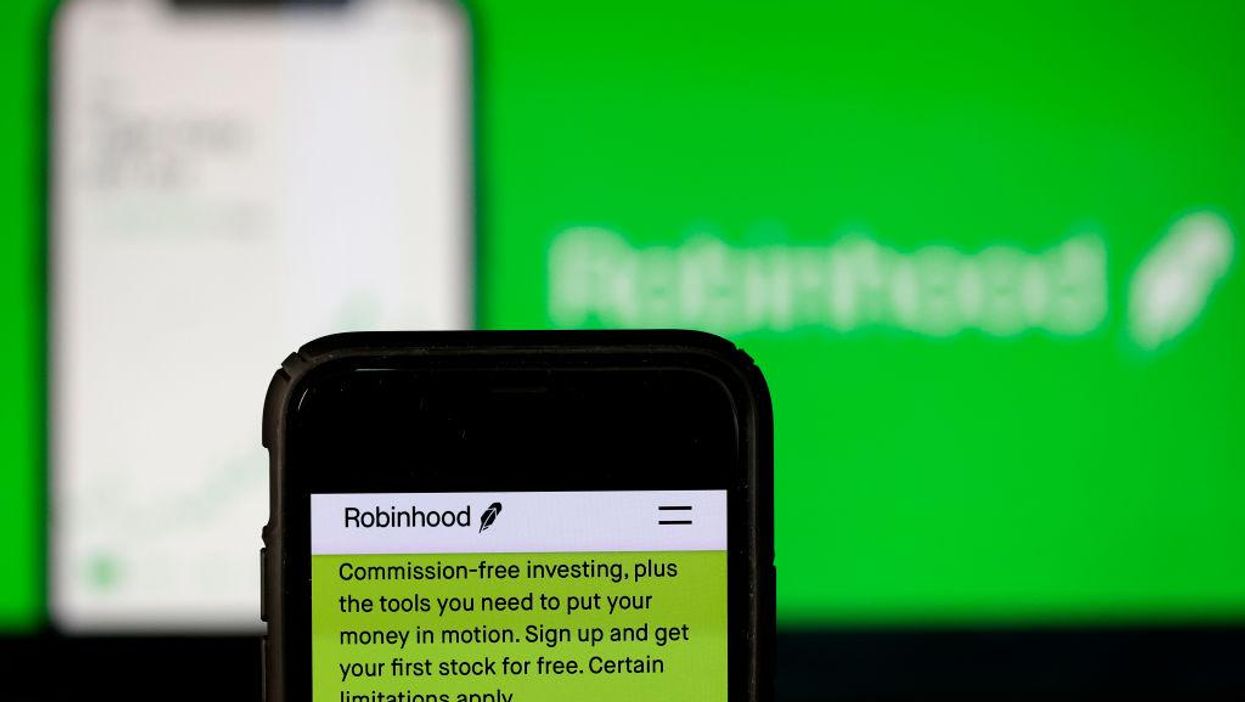
Justin Sullivan/Getty Images

'Robinhood purposefully, willfully, and knowingly removing the stock "GME" from its trading platform in the midst of an unprecedented stock rise thereby deprived retail investors of the ability to invest in the open-market and manipulating the open-market'
A federal class action lawsuit was filed Thursday against the stock trading company Robinhood after it restricted its customers from buying shares of GameStop and other stocks popularized on the Reddit forum WallStreetBets.
Attorney Alex Cabeceiras filed the lawsuit in the Southern District of New York on behalf of plaintiff Brendon Nelson, a Massachusetts resident. On Thursday, Nelson said he logged into his Robinhood account and discovered that GameStop's stock had disappeared from the app. Robinhood also prevented users from buying more shares of it.
The complaint filed by Cabeceiras argues "Robinhood purposefully, willfully, and knowingly removing the stock 'GME' from its trading platform in the midst of an unprecedented stock rise thereby deprived retail investors of the ability to invest in the open-market and manipulating the open-market."
The lawsuit demands that the court immediately issues an injunction forcing Robinhood to reinstate GameStop's stock on its platform. Additionally, it seeks a class action fee for all Robinhood users prevented from trading GameStop, an award for attorney's fees, and punitive damages.
The Daily Beast reported that another law firm, ChapmanAlbin, announced in a statement Thursday that it was "investigating claims on behalf of Robinhood users that were affected and suffered losses as a result of investing in Gamestop or AMC."
"Robinhood appears to be up to the same old tricks, recruiting social media influencers to encourage individuals to sign up and fund a Robinhood account and beginning purchasing shares of securities such as GameStop and AMC, with no consideration as to the suitability of the purchases," ChapmanAlbin attorney Philip Vujanov said.
Robinhood and other stock brokers' decision to ban trading of GameStop comes after retail investors on the popular forum WallStreetBets began a campaign to buy the stock amidst news that several hedge fund investors were attempting to short it for a profit. WallStreetBets boasts over two million users on its discussion board. The organic campaign to create artificial demand for GameStop stock successfully caused its price to rise more than 1,000% over one week, forcing short sellers to buy back into the stock to cover their potential losses.
This process, known as a short-squeeze, caused short sellers to lose an estimated $70.87 billion while the retail traders who bought into GameStop have seen the value of their shares increase dramatically.
The decision to ban trading of GameStop and other shorted stocks by Robinhood, WeBull, Interactive Brokers, and other stock trading companies was received by their customers as a statement that these services will prioritize the interests of Wall Street hedge funds over decentralized, individual traders. Lawmakers in both parties have now called for congressional investigations on the trade freeze, probing whether Robinhood and others acted unfairly by shutting retail traders out of the market while permitting credentialed Wall Street investors to trade as they please.